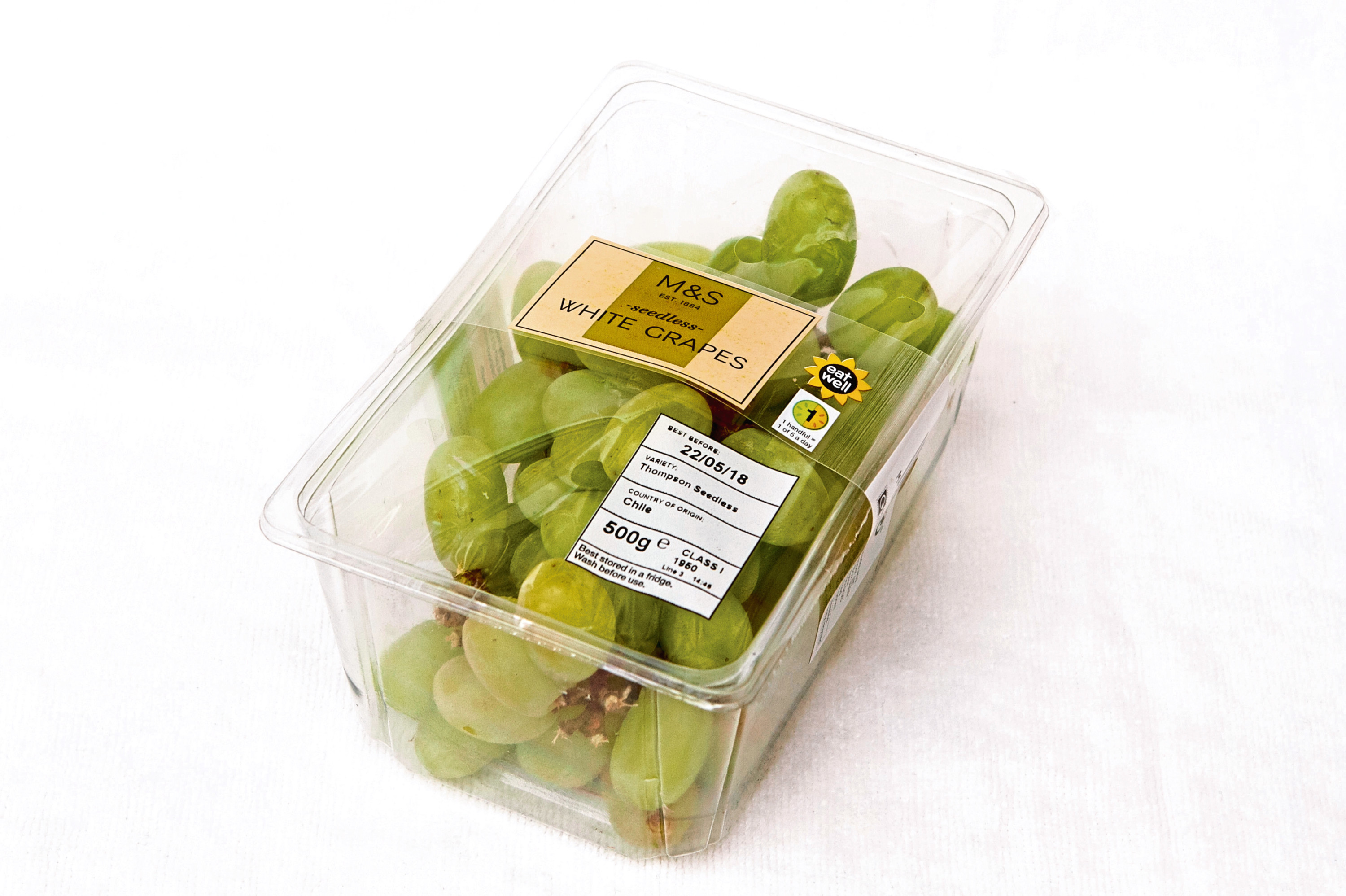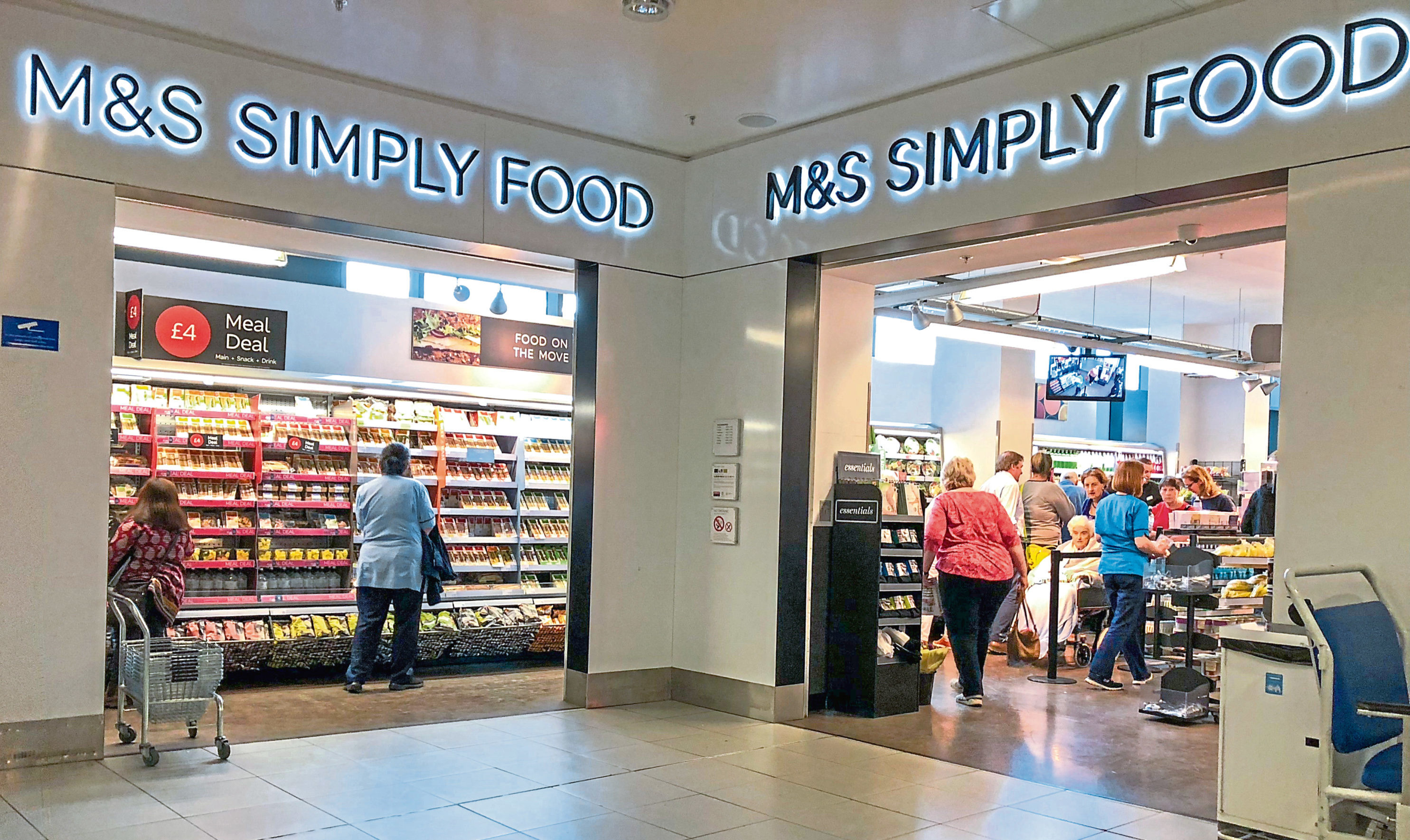
RETAILERS Marks & Spencer has been accused of “cynical” price hikes after charging more for groceries in hospital shops than in high street stores.
The retail giant is charging more for everyday items, from fruit and sandwiches to bread and teabags in M&S shops based in hospitals in Scotland.
At the Queen Elizabeth University Hospital in Glasgow, a basket of 10 items added up to a total of £27.25. The same goods were just over £2 cheaper on the high street, costing £25.20.
A range of groceries on sale at the M&S store at the Royal Infirmary of Edinburgh were also more expensive than on the high street.
A 650g bag of seedless easy peel oranges was on sale for £3 in the hospital shop, compared to the ordinary price of £2.85.
Other examples include a 300g block of mature red cheddar cheese, which cost £3.20, a hike of 20p on the high street price.

A meal deal of a sandwich, a meal and a drink, which costs £3.50 on the high street is 50p more when purchased in a hospital.
And 500g of white grapes was priced at £2.80 in hospital compared to £2.75.
Rachel Power, chief executive of The Patients Association, said: “Raising the prices of essential and everyday items in hospital outlets well above what they would cost on the high street is cynical and highly unfair.
“When people are unwell and in hospital, and therefore unable to go elsewhere with any ease, they should be able to expect retailers not to exploit their situation for profit.”
The findings come after WH Smith apologised last week for selling a tube of Colgate toothpaste for £7.99 at hospital kiosks. It could be bought for as little as £1 in supermarkets and chemist shops.
The newsagent said the price hike had been due to a computer glitch on a certain line of products, which had been rectified, and the extra profits from the sales would be donated to charity. And it said the prices in its hospital stores should be the same as the high street branches.
Mark Olliver, director of retail for the charity Royal Voluntary Service, which runs cafés, shops and trolley services in UK hospitals, said it had faced increasing competition for space with commercial high street retailers over the past few years.
He added: “As well as the presence of our wonderful, compassionate volunteers, we offer health boards the opportunity to re-invest the funds raised through our retail presence into services to support the hospital.”
A spokeswoman for NHS Greater Glasgow and Clyde said it did not control or influence the prices charged by retailers in the Queen Elizabeth University Hospital, which had to meet a number of criteria such as offering healthy food and drink choices.
She said: “They were also scored on their track record in hospital retailing, the community benefits they could offer as well as their pricing strategy in comparison to other hospitals and high street prices.”
She added that the rents charged to the retailers are “very fair” and would not lead to higher prices.
NHS Lothian said: “NHS Lothian requires its tenants to operate within the terms of the lease.
“These terms would include tenant responsibilities for such things as the cleanliness of the unit and clauses covering opening hours, the type of products which could be sold and those which could not.
“As the Royal Infirmary of Edinburgh is a PFI contract, the leasing for the retail outlets do not go through NHS Lothian and therefore we have little influence over the price of the products.”
A spokesman for Marks & Spencer said: “Our prices are a little higher in small Simply Food stores in hospitals and travel locations.
“This reflects the fact that running costs are higher in these stores compared to high street stores.”

Enjoy the convenience of having The Sunday Post delivered as a digital ePaper straight to your smartphone, tablet or computer.
Subscribe for only £5.49 a month and enjoy all the benefits of the printed paper as a digital replica.
Subscribe